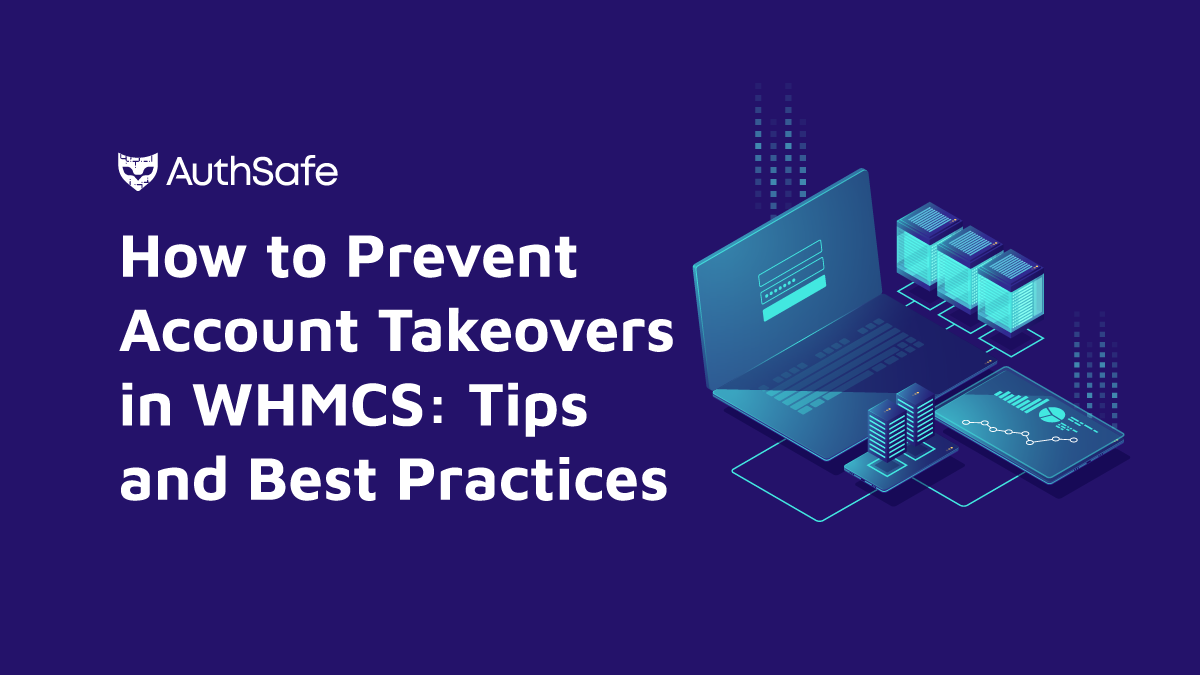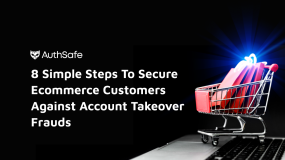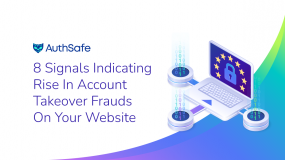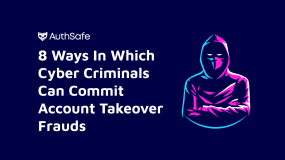
If you’re running an online business and using WHMCS to manage your customer accounts, you’re probably well aware of the importance of keeping those accounts secure. Unfortunately, account takeovers are all too common in the world of online business. They can be incredibly damaging to your reputation and bottom line. In this blog post, we’ll be diving into the world of account takeovers. We will provide tips and best practices for preventing them in WHMCS.
But first, let’s talk about what exactly a “WHMCS account takeover” is. Essentially, it’s when someone gains unauthorized access to a customer account in your WHMCS system. This can happen through a variety of means. It includes phishing, weak passwords, or even just a lack of proper security protocols. Once an attacker has taken over an account, they can wreak havoc. It can range from changing account details to making unauthorized purchases. It’s a nightmare scenario for any business, and it’s one that we hope to help you prevent.
10 tips to prevent account takeovers
Are you tired of constantly worrying about your WHMCS account being taken over by hackers? Well, don’t worry, because we have compiled a list of 10 tips to prevent those pesky account takeovers. From strong passwords to two-factor authentication, we’ve got you covered.
These tips will not only protect your account but also give you peace of mind so you can focus on doing what matters most to you.
1. Protect WHMCS admin area
When you first install WHMCS, an admin user will be created for you automatically. This user has full access to all aspects of the WHMCS system, including the ability to change passwords or delete accounts.
It’s important to protect this admin account by setting up a strong password that is not easy to guess or brute force (i.e., attempt every possible combination of letters, numbers, and capitalization).
You can do this by creating a random string of characters with dashes between them (e.g., “TH1S-IS-my-passw0rd”) or creating something more memorable like “The-Wasp-Hates-Clogs.”
2. Identify the headless browsers and automated tools that use TOR, VPN, Proxies, Datacenter IPs, High-Risk ISPs, and IPs used by malware
WHMCS is one of the most popular web hosting control panels that you can use to manage your server. However, it does not come with a security system and this makes it vulnerable to attacks and account takeovers.
Preventing account takeovers in WHMCS is like playing a game of cat and mouse with hackers. They’re constantly coming up with new ways to infiltrate your system, but with a little bit of cunning and a lot of know-how, you can stay one step ahead of them.
The key is to identify the headless browsers and automated tools that they use to create fake accounts. These sneaky little guys love to hide behind TOR, VPNs, Proxies, Datacenter IPs, High-Risk ISPs, and IPs used by malware. But with a keen eye and a bit of detective work, you can spot them a mile away and shut them down before they can do any damage.
Once you have identified these techniques, you should block them from accessing your server so that they cannot create fake accounts on WHMCS as well as steal your data.
3. Limit WHMCS access by IP addresses
By default, WHMCS allows users to log in from any IP address. This can be dangerous. You can limit the IP addresses allowed to log in to your WHMCS account by going to the “Security” tab, then “IP Address Restrictions.”
From there, you can choose which IP addresses are allowed to log in (and which ones aren’t).
4. Enable two-factor authentication (2FA)
Two-factor authentication adds an extra layer of security by requiring you to enter a code generated by an app on your phone before logging into the account from the web. Microsoft’s 2019 report found that two-factor authentication works very effectively, blocking 99.9% of automated attacks.
Enable two-factor authentication (2FA) for all accounts, including the WHMCS administrator account. This means that even if someone has your username and password, they won’t be able to gain access unless they also have access to your phone—and even then, it’s still not guaranteed because the hacker would have to guess or brute force their way through your 2FA code too!
5. Use a firewall
A firewall is your first line of defense against account takeovers. WHMCS uses a firewall that prevents unauthorized access to server ports, but you can add extra protection by using an external firewall on your server to block all inbound connections and outbound connections from your server.
6. Regularly review and monitor account activity
It’s important to regularly review activity on all accounts, especially those with multiple users. You want to ensure that each person has appropriate permissions on their own accounts so they can’t accidentally or intentionally give themselves access they shouldn’t have.
And if someone reports suspicious activity (like unusually high usage), it’s important to investigate immediately rather than wait until later!
7. Update your security policies
It’s also important that you make sure your policies are up-to-date to reflect the latest security threats and best practices. This means reviewing them regularly and making necessary changes, whether by updating outdated information or adding new protocols that address emerging risks.
8. Enable secure communication protocols, such as HTTPS, for all web traffic
A secure connection ensures that your data is protected from eavesdropping and tampering. You can also add an extra layer of protection to communication protocols such as HTTPS by using a VPN service to encrypt all of your internet traffic.
This way, even if someone does intercept your account credentials, they won’t be able to use them to access your WHMCS account without first decrypting the information.
9. Train your staff on best practices for account security
It’s important to ensure your staff understands account security’s importance and how they can help prevent account takeovers. Your staff should know how to spot suspicious behavior and report it immediately.
It’s also crucial that they understand what a password reset process looks like, so they can recognize if someone is trying to impersonate them to gain access to an account.
10. Implement SSL certificates
Implementing SSL certificates on your website is one of the most effective ways to prevent account takeovers in WHMCS.
An SSL certificate is a digital document that verifies the identity of a website and encrypts the information that passes between your browser and the server hosting your site. If someone tries to log into your WHMCS account from an unknown or untrusted IP address, they will receive a warning saying that the site’s security certificate has expired or been revoked.
If this happens, users will be less likely to attempt a takeover because they know it will be more difficult for them to succeed without getting caught.
To conclude,
Preventing WHMCS account takeovers is crucial for the security of your business and your clients’ information. By following the 10 tips outlined in this article, you can greatly reduce the risk of an attacker gaining unauthorized access to your WHMCS account.
Remember, strong passwords, two-factor authentication, and keeping your software updated are all essential steps to secure your WHMCS account. But don’t forget the little things, like regularly reviewing your login activity and being suspicious of unsolicited emails.
By taking a comprehensive approach to security, you can rest easy knowing that your WHMCS account is safe and secure. So, keep your guard up and always be on the lookout for potential threats, because as they say, an ounce of prevention is worth a pound of cure.
And, in this case, it’s a lot of valuable client information too. To get started with these measures, connect with us today.






